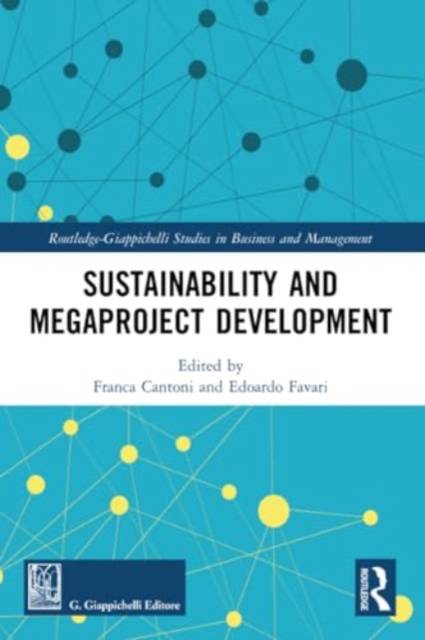
- Retrait gratuit dans votre magasin Club
- 7.000.000 titres dans notre catalogue
- Payer en toute sécurité
- Toujours un magasin près de chez vous
- Retrait gratuit dans votre magasin Club
- 7.000.000 titres dans notre catalogue
- Payer en toute sécurité
- Toujours un magasin près de chez vous
Sustainability and Megaproject Development
Description
Megaprojects, also referred to in the literature as Large Engineering Projects or Major Projects, are generally defined as large-scale investment initiatives worth 1b /$ or more and, facing similar problems independent of the country where they are implemented and the industry they belong to. The common feature of most megaprojects is that they are difficult to design and manage so that their realization and completion is always extremely expensive, often over budget and delivery deadlines also are not met. In the worst-case scenario, they remain unfinished.
This book, through its multidisciplinary approach, offers food for thought and alternative interpretations for the complex world of megaprojects. While much research has been conducted and differing approaches have been developed over the last 20 years, there is still a lot of debate surrounding the topic, and a holistic approach for effectively managing these initiatives is still missing. What is clear to all researchers and experts in the field is that a traditional-linear management approach is simply not sufficient, as at many stages of a megaproject, iterative and feedback effect occurs due to stakeholder involvement and increasing and continuous interaction between them.
The book promotes the debate among all categories of stakeholders involved in the megaproject's supply chain, in order to increase the awareness of complex phenomena relating to the critical issues and common problems they face, all over the world, and to seek performance improvement across the whole life cycle of a megaproject, including the selection, design, construction, operation and de- commissioning.
The multidisciplinary approach cultivated in the book conveys an innovative way to study megaprojects and their inherent complexities.
Spécifications
Parties prenantes
- Editeur:
Contenu
- Nombre de pages :
- 224
- Langue:
- Anglais
- Collection :
Caractéristiques
- EAN:
- 9781032305783
- Date de parution :
- 29-01-24
- Format:
- Livre broché
- Format numérique:
- Trade paperback (VS)
- Dimensions :
- 156 mm x 233 mm
- Poids :
- 452 g






